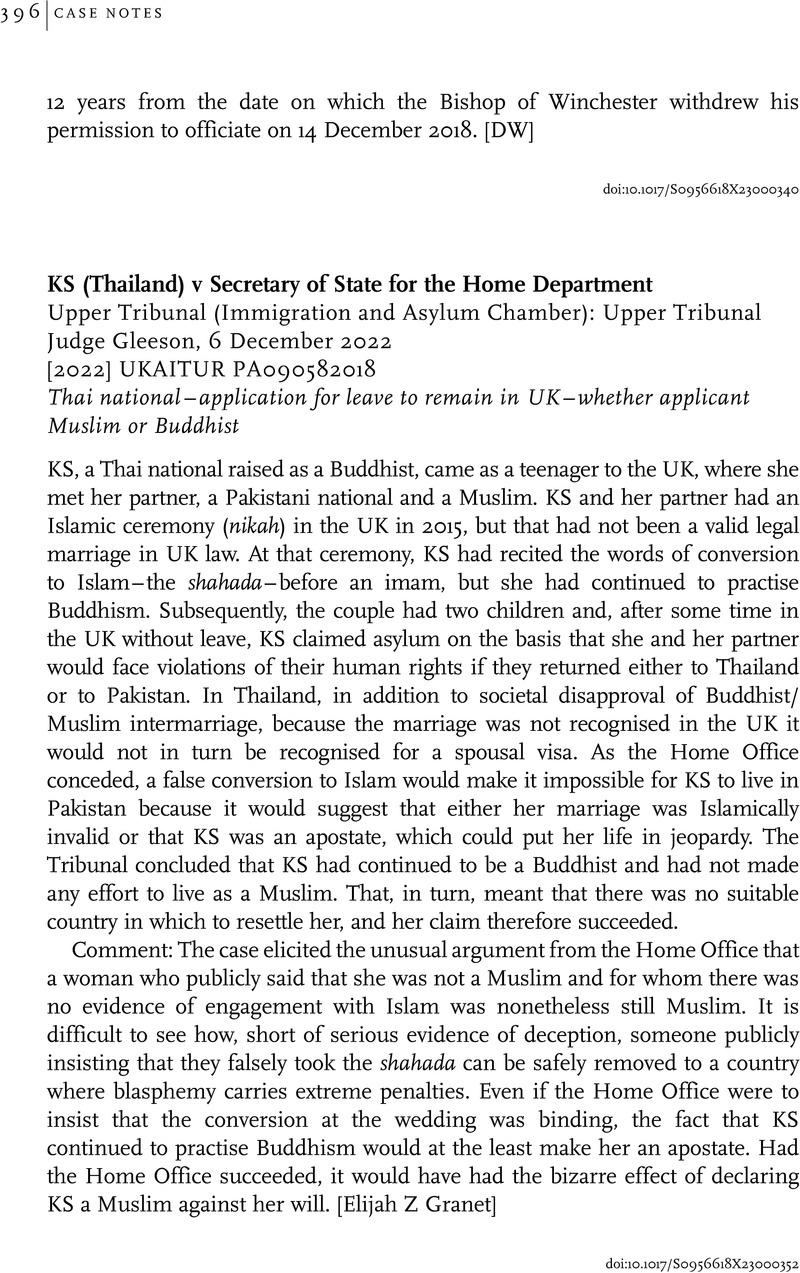No CrossRef data available.
Upper Tribunal (Immigration and Asylum Chamber): Upper Tribunal Judge Gleeson, 6 December 2022[2022] UKAITUR PA090582018Thai national – application for leave to remain in UK – whether applicant Muslim or Buddhist
Published online by Cambridge University Press: 05 September 2023
